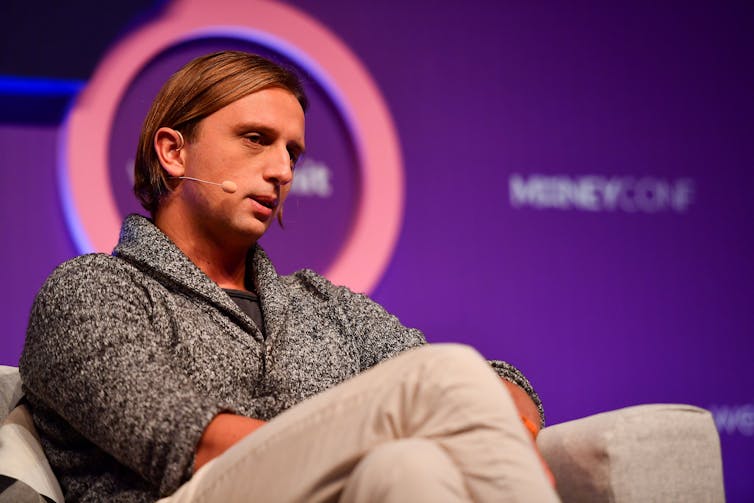Sofia/Warsaw: Russia’s Gazprom halted gas supplies to Poland and Bulgaria on Wednesday over their failure to pay in roubles, cranking up an economic war with Europe in response to Western sanctions imposed for Moscow’s invasion of Ukraine.
The state-controlled gas pipeline monopoly, which supplies Europe with about 40% of its gas needs, said transit via Poland and Bulgaria – whose pipelines supply Germany, Hungary and Serbia – would be cut if fuel was siphoned off illegally.
Fears that more states could be hit, in particular Germany, Europe’s industrial powerhouse which relied on Russia for more than 50% of its gas imports in 2021, sent gas prices soaring and added to jitters about the global economic impact of the war.
President Vladimir Putin’s demand for rouble gas payments is the centrepiece of Russia’s response to sanctions which include freezing hundreds of billions of dollars of Russian assets.
The European Commission accused Moscow on Wednesday of blackmail. But it has said Russia’s payment system could be used without breaching European Union sanctions. Uniper, Germany’s main importer, said it could pay without violations.
The Kremlin, which casts sanctions by the United States and Europe as acts of economic war, said on Tuesday that Gazprom was implementing Putin’s decree on rouble payments.
“Payments for gas supplied from April 1 must be made in roubles using the new payments details, about which the counterparties were informed in a timely manner,” Gazprom said.
It said it was halting supplies to Bulgaria’s Bulgargaz and Poland’s PGNiG “due to absence of payments in roubles.”
Warsaw, which has been at the forefront of efforts to keep Ukraine’s military supplied with equipment to fight Russian forces, and Sofia said the halt was a breach of contract.
Few options
European Commission President Ursula von der Leyen said Russia’s action was “unjustified and unacceptable” and said the EU would seek alternative supplies, aiming to refill the bloc’s depleted stores before next winter.
But Europe has few options given the global market for gas was tight as a drum before the crisis escalated. Europe relies on pipelines for most of its gas, and European or North African producers connected to the grid cannot add much more output.
Shipments of liquefied natural gas (LNG) from suppliers further afield are usually booked up in long-term contracts. The United States, which long criticised Europe for relying on Russia, has offered Europe more LNG, but U.S. supplies are not adequate. Even if Europe can secure more LNG, it does not have enough plants to convert the super-cooled liquid back into gas.
Germany plans to build such plants but, for now, has none.
The European Commission has said companies should pay in the currency agreed in existing contracts with Gazprom – almost all of which are in euros or dollars.
But it said companies could still make payments without breaching sanctions under Russia’s new system. One option would involve companies confirming contractual obligations were completed when they deposited dollars or euros with Gazprombank – which handles payments – before any conversion to roubles.
Uniper, which said its payments would still comply with sanctions, said German supplies remained safe despite the halt to Poland and Bulgaria. Hungary, meanwhile, said this month it was prepared to pay in roubles.
But one of the Kremlin’s most loyal lawmakers suggested Moscow could expand action beyond Poland and Bulgaria.
“The same should be done with regard to other countries that are unfriendly to us,” said Vyacheslav Volodin, the speaker of Russia’s lower house of parliament, the Duma.
Rationing looms
For now, Austria, Germany, Czech Republic, Italy and Hungary said Russian gas supplies were still flowing.
Bulgaria and Poland are the only two European countries with Gazprom contracts due to expire at the end of this year, which meant their search for alternative supplies was well underway.
“They were therefore less likely to compromise on Russia’s rouble payment request than others in Europe,” said James Waddell, head of European gas at consultancy Energy Aspects.
But he said that, with global supplies so tight, losing Russian gas meant “either the market shoots up to make industrial gas use uneconomic or governments intervene in rationing supply. At a certain point, rationing is unavoidable.”
Germany has already activated the first stage of an emergency plan, which by its third stage involves the regulator deciding how to distribute supplies to industry, which accounts for a quarter of German gas demand.
Carmaker Mercedes-Benz warned that an abrupt halt in deliveries in Germany would impact production in its home market.
Poland, alongside the United States and some other European states, had long been critics of its European neighbours which had been steadily deepening a reliance on Russian gas that was first pumped to Europe in the 1970s, during the Soviet era.
Poland’s contract with Gazprom is for 10.2 billion cubic meters (bcm) per year, covering about 50% of its demand. Bulgaria, which relies on Russia for about 90% of its gas imports, said it would not hold talks to renew its Gazprom deal.
In the European gas market, the benchmark Dutch front-month gas contract at the TTF hub jumped around 20% to as high as 118 euros ($125.14) per megawatt hour (MWh) in earlier trade, before trading at 106.20 euros/MWh by 0938 GMT.




